Can bearded dragons eat kiwi fruit? If you’re a dedicated reptile owner, you’ve probably asked this question while holding a slice of this bright, juicy fruit. Kiwi is packed with nutrients and flavor, but not everything healthy for humans is safe for your bearded dragon. Understanding whether bearded dragons can eat kiwi fruit—and how often—is essential for keeping your pet healthy and thriving.
In this guide, we’ll explore what makes kiwi both tempting and potentially tricky in a bearded dragon’s diet. We’ll cover the nutritional benefits, the possible risks, and the expert-approved way to serve it. If you’ve been wondering what fruits are safe for bearded dragons, or how kiwi compares to other treats, you’re in the right place.
Let’s break down the facts and discover whether feeding kiwi fruit to bearded dragons is a colorful win—or a sweet mistake.
Can Bearded Dragons Eat Kiwi Fruit Safely?
Kiwi looks like the perfect treat—bright green, juicy, and packed with nutrients. But just because it’s healthy for us doesn’t mean it’s automatically good for your bearded dragon. Let’s see if kiwi is a safe addition to their diet.
Is Kiwi Toxic or Harmful to Bearded Dragons?
The short answer? No, kiwi isn’t toxic to bearded dragons. That said, it’s not something they should eat all the time. While a small piece now and then is fine, feeding kiwi too often can lead to problems—mostly because of things like acidity and sugar.
Understanding the Nutritional Profile of Kiwi
Kiwi is full of good stuff like vitamin C, fiber, and antioxidants, along with a good dose of water. It also has a bit of calcium and potassium, which are great in moderation. But it’s not all sunshine—kiwi has more sugar than your dragon needs, and its calcium-to-phosphorus ratio isn’t ideal.
Oxalates and Acidity—Are They a Concern?
Definitely something to watch out for. Kiwi contains oxalates, which can mess with calcium absorption over time. That’s a big deal for bearded dragons because they need calcium to stay strong and avoid issues like metabolic bone disease. Kiwi is also pretty acidic, which can irritate their tummy if they eat too much of it.
What Makes Kiwi a “Sometimes” Treat?
While kiwi isn’t bad, it’s better as a rare snack than a regular part of the menu. Most reptile experts suggest offering kiwi just once every couple of weeks, and only in small, peeled, seed-free pieces. It’s a treat—not a staple.
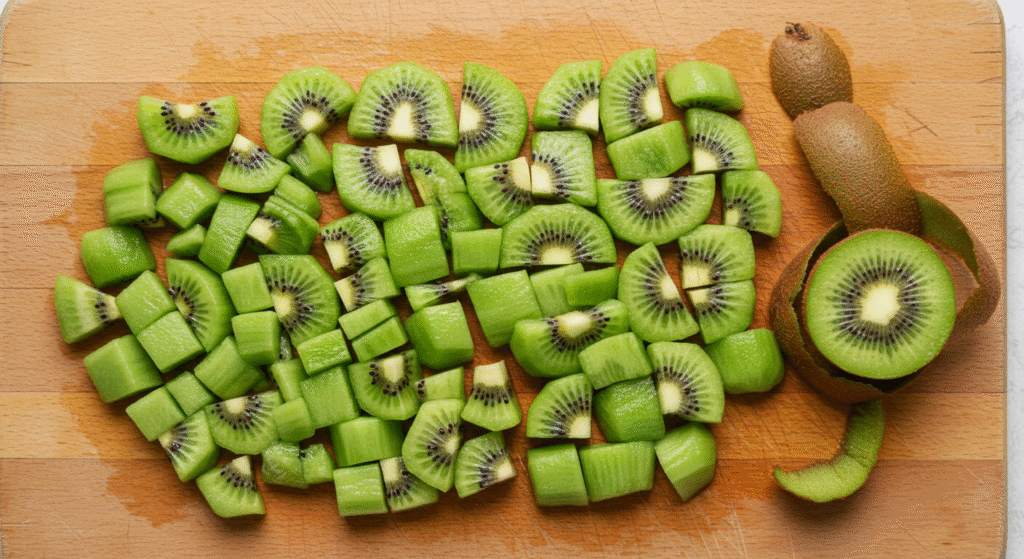
Health Benefits of Kiwi for Bearded Dragons
So, we’ve talked about the risks—but what about the good stuff? In small amounts, kiwi can actually offer some cool benefits for your bearded dragon. Here’s what makes it a decent choice every now and then.
Hydration and Natural Sugars
Kiwi is super hydrating thanks to its high water content. That can come in handy during warm weather or if your dragon’s a bit sluggish. The natural sugars also give them a little energy boost—but like any sugary food, it’s best in moderation.
Vitamin C and Fiber Content
Kiwi is loaded with vitamin C, which can help support your dragon’s immune system and overall health. It’s also got fiber, which keeps things moving in their digestive system. Just don’t go overboard—too much fruit can have the opposite effect and cause runny poops.
Does Kiwi Support Digestive Health in Reptiles?
A little bit, yes. The fiber and water combo can help with digestion and keep things regular. But too much kiwi can lead to bloating or diarrhea, so it’s all about balance. Watch how your dragon reacts after trying it—you’ll know pretty quickly if it agrees with them or not.
Risks and Downsides of Feeding Kiwi Fruit
Kiwi has some great benefits, but it also comes with a few downsides you shouldn’t ignore. Feeding the wrong amount—or feeding it too often—can lead to problems for your bearded dragon. Let’s look at the main risks.
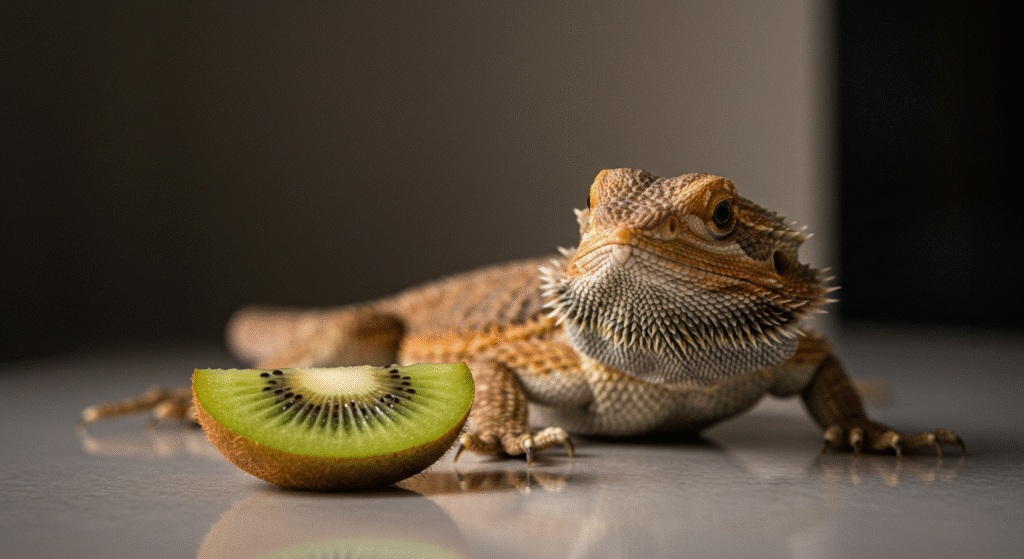
High Sugar Content and Overfeeding Risks
Kiwi has a lot of natural sugar. While that might make it taste great, it’s not something your bearded dragon needs in large amounts. Too much sugar over time can lead to weight gain, sluggish behavior, or even issues with their digestion. That’s why kiwi should always be treated as an occasional snack—not something they eat every week.
Calcium to Phosphorus Ratio in Kiwi
Bearded dragons need a diet that’s high in calcium and low in phosphorus. Unfortunately, kiwi doesn’t have the best balance. It contains more phosphorus than calcium, which can interfere with how your dragon absorbs calcium from other foods. If this happens often, it could lead to serious health issues like metabolic bone disease.
Can Kiwi Cause Diarrhea or Upset Stomach?
Yes, especially if your dragon isn’t used to fruit or eats too much in one sitting. Kiwi’s high water content and acidity can upset their digestive system. Loose stools or mild bloating might show up after eating it. That’s why it’s important to introduce kiwi slowly and keep an eye on how your dragon reacts.
How to Feed Kiwi to Bearded Dragons the Right Way
If you’re going to give your bearded dragon kiwi, it’s all about doing it the right way. A small, well-prepared portion can be a safe treat—as long as it’s not overdone. Here’s how to offer kiwi without causing problems.
If you want to diversify your dragon’s diet with other safe veggies, check out our detailed guide on Can Bearded Dragons Eat Squash? A Colorful, Crunchy Delight.
Recommended Portion Sizes and Frequency
A good rule of thumb is to offer just a few small bites—no more than once every two to three weeks. Kiwi should never be a regular part of your dragon’s diet. Instead, use it as a bonus treat alongside their staple greens and veggies.
Should You Remove Kiwi Skin and Seeds?
Yes, always. The skin is tough and hard to digest, and the seeds—while small—can pose a slight choking risk or cause irritation. Peel the kiwi completely and remove any seeds before feeding it to your bearded dragon.
Preparing and Serving Kiwi Safely
Wash the kiwi thoroughly, even if you plan to peel it. Then, cut it into tiny, manageable pieces to prevent choking. Serve it alone or mix it in with leafy greens to make it more enticing. Just make sure kiwi doesn’t crowd out more nutritious foods in the bowl.
Can Baby Bearded Dragons Eat Kiwi Fruit?
It’s best to avoid giving kiwi to baby bearded dragons. Their digestive systems are still developing, and they need a more strict, nutrient-dense diet. Stick to safe greens and protein sources for young dragons. Kiwi can be introduced later, in tiny amounts, once they’re older and more stable.
What Other Fruits Can Bearded Dragons Eat Instead of Kiwi?
While kiwi can be an occasional treat, there are plenty of other fruits that are safer or better balanced for regular feeding. Knowing which fruits are ideal—and which to avoid—can help you create a well-rounded and healthy diet for your bearded dragon.
Best Fruits for Daily or Weekly Feeding
Not all fruits are created equal. Some are much safer and more nutritious for bearded dragons than kiwi. Good options for occasional feeding include blueberries, raspberries, papaya, mango, and apple slices (peeled and seedless). These fruits are lower in oxalates and have better calcium-to-phosphorus ratios compared to kiwi. Still, they should only be offered once or twice a week and always in small amounts.
Fruits to Avoid Completely
Some fruits should be left off your dragon’s menu entirely. Citrus fruits like oranges, lemons, and grapefruit are too acidic and can cause digestive irritation. Avocado is toxic to reptiles, and rhubarb is dangerous due to its high oxalic acid content. Also, steer clear of dried fruits—they’re too sugary and lack moisture, which can lead to dehydration or digestive upset.
How Kiwi Compares to Berries, Melon, and Mango
Kiwi has a similar water and sugar content to fruits like melon and mango, but it’s usually higher in acidity and oxalates. In comparison, berries—especially blueberries and raspberries—are lower in sugar and gentler on the digestive system. That makes them a slightly better option if you’re looking for a sweet treat that won’t cause as many issues.
Seasonal Fruit Rotation for Balanced Nutrition
Rotating the types of fruit you offer based on the season is a great way to keep your bearded dragon’s diet varied and nutritious. In summer, watermelon, berries, and mango can be hydrating and refreshing. In cooler months, apple, pear, and papaya make good options. Just make sure fruit remains a small part of the overall diet—most of your dragon’s nutrition should still come from leafy greens, vegetables, and insects.
Conclusion
When it comes to can bearded dragons eat kiwi fruit, the answer is yes—but only as an occasional treat. Kiwi offers some nutritional benefits like vitamin C, fiber, and hydration, but its high sugar content, acidity, and oxalates mean it shouldn’t be a regular part of your dragon’s diet. Feeding kiwi in small, prepared portions every few weeks is the safest approach to avoid potential digestive upset or calcium imbalance.
Remember, a balanced bearded dragon diet relies mostly on leafy greens, vegetables, and protein sources, with fruits like kiwi playing a minor, supplemental role. If you’re ever unsure about introducing new foods, consulting a reptile-savvy veterinarian can provide peace of mind and help keep your pet healthy.
By understanding both the benefits and risks, you can confidently decide whether kiwi fruit is a colorful, tasty addition to your bearded dragon’s menu—just make sure to serve it the right way, in moderation, and always watch how your pet reacts.

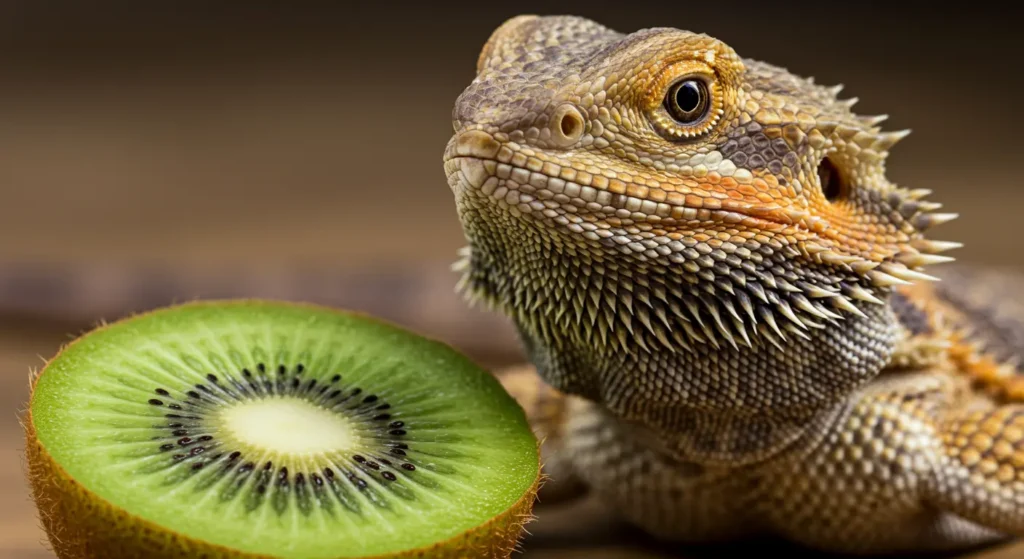

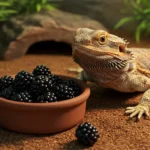
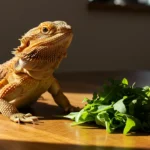

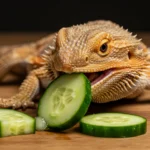
2 thoughts on “Can Bearded Dragons Eat Kiwi Fruit? A Colorful Choice Explained”